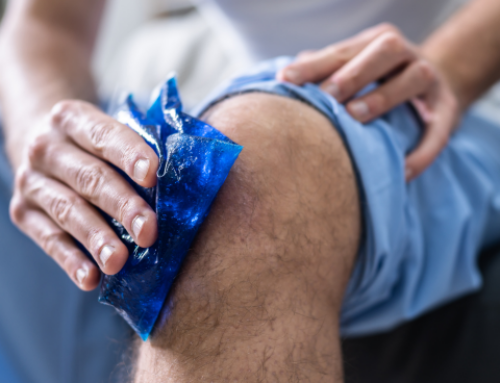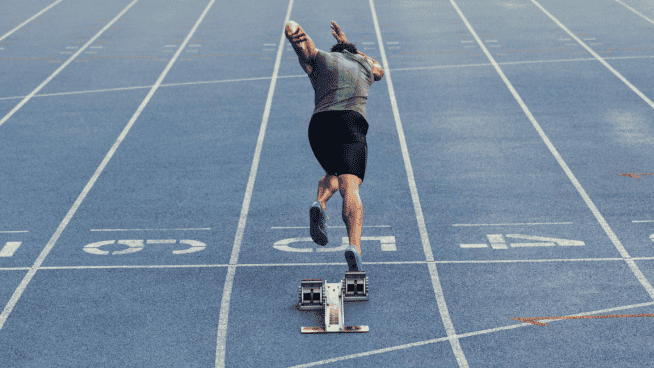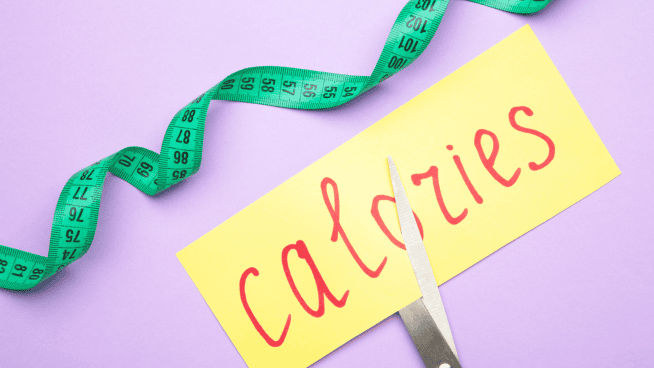LeBron James Reveals His Secret for Superhuman Sleep
LeBron James seems impervious to fatigue.
King James has already played more playoff minutes (10,049) than any other man in basketball history. His average of 38.69 minutes per regular-season game ranks first among all active NBA players. As opponents fall victim to dead legs and scorched lungs, LeBron only seems to grow stronger.
On a recent appearance on The Tim Ferriss Show podcast alongside his longtime trainer, Mike Mancias, LeBron discussed his approach to recovery. While James has stated he spends $1.5 million a year to keep his body healthy, both he and Mancias agree sleep is far and away his most valuable asset.
Mancias states consistently creating an environment conducive to great sleep is one of LeBron’s most fruitful habits.
“Number one is being very accountable in that room. Create an environment. For us, it’s always, for LeBron, in his hotel room. Making sure the temperature is set at a particular—probably 68 to 7o degrees is probably optimal. Making sure the room is completely dark. You have no distractions. Trying to turn off all your electronics, televisions, phones, etc. Turn everything off probably a half hour to 45 minutes before you actually want to go to sleep. Really committing yourself to that. We all love to scroll on the internet and our social media accounts at night to catch up on everything, but you owe it yourself and you owe it your recovery to commit and create an environment. The room at optimal temperature, dark, dark room, comfortable bed,” Mancias said.
LeBron revealed he often utilizes an app called Calm to help him drift off into dream land. The app, which was named Apple’s iPhone app of the year for 2017, offers a variety of features design to help with meditation and sleep. This includes soundtracks designed to help you fall and stay asleep. “It’s an app called Calm, actually. And I’m the guy who picks rain on leaves. That’s what goes on my phone throughout the night,” LeBron said. He went on to continue discussing the virtues of sleep, stating he always aims for at least 8 to 10 hours a night.
“There’s nothing more important than optimal REM sleep. That’s the best way for your body to physically and emotionally be able to recover and get back to 100 percent as possible. Will you wake up and feel 100 percent? There’s some days you don’t, some days you feel better than others. But the more, more, more time you get eight—if you can get nine, that’s amazing, sometimes I even get 10 hours of sleep. And if I don’t get those 8 to 10 hours at night, I’ll go home—I tell your right now, when I leave here, I’m gonna go home and take me a nap for about two-and-a-half hours. I just think that’s the best way to recover. I can do all the training, I can do all the ice bags and the Normatecs and everything that we do as far as our recovery package while I’m up, but when you’re getting that good sleep, you just wake up and you feel fresh. You don’t need an alarm clock. You just feel like ‘OK, I can tackle this day at the highest level.'”
LeBron is right. You can spend loads of time, money and energy on training and recovery, but if you don’t get adequate sleep, much of it will go to waste. Restorative sleep is what gives your body the opportunity to cash in on all that hard work and turn it into significant, lasting improvement.
“Not meeting your sleep requirement has serious deleterious consequences. It significantly increases your risk of heart disease, stroke, diabetes, obesity, cancer—you name it,” renowned sleep expert Dr. James Maas told STACK. “Sleep deprivation lowers your immunity and puts your health at risk. Emotionally, sleep deprivation increases your risk of clinical depression and makes you more irritable and anxious. Your motor coordination and reaction time suffer. Cognitively, there’s a huge detriment. Concentration, critical thinking, creative thinking—it all suffers when you don’t meet your sleep requirement. Sleep quality and quantity is also the best prediction of how long we’re going to live. In short, sleep deprivation makes you clumsy, ignorant and shortens your life.”
For athletes, not getting enough sleep is particularly harmful. A 2011 study in the journal SLEEP found Stanford basketball players were able to dramatically improve their on-court performance simply by increasing their total amount of sleep time. After increasing their sleep to 10 hours per night for five to seven weeks, players clocked faster sprint times, increased their free-throw percentage by 9 percent, and boosted their 3-point shooting accuracy by 9.2 percent. Reported fatigue also decreased.
Sufficient sleep also greatly reduces injury risk in athletes. An abstract presented at the 2012 American Academy of Pediatrics National Conference found adolescent athletes who slept eight or more hours each night were 68% less likely to be injured than athletes who regularly slept less.
Want to play like a superstar? You can start by aiming to get super sleep. Mancias and James both make great recommendations, and you can also read our 18 Rules for Better Sleep for more tips.
Photo Credit: Andrew D. Bernstein/Getty Images
READ MORE:
RECOMMENDED FOR YOU
LeBron James Reveals His Secret for Superhuman Sleep
LeBron James seems impervious to fatigue.
King James has already played more playoff minutes (10,049) than any other man in basketball history. His average of 38.69 minutes per regular-season game ranks first among all active NBA players. As opponents fall victim to dead legs and scorched lungs, LeBron only seems to grow stronger.
On a recent appearance on The Tim Ferriss Show podcast alongside his longtime trainer, Mike Mancias, LeBron discussed his approach to recovery. While James has stated he spends $1.5 million a year to keep his body healthy, both he and Mancias agree sleep is far and away his most valuable asset.
Mancias states consistently creating an environment conducive to great sleep is one of LeBron’s most fruitful habits.
“Number one is being very accountable in that room. Create an environment. For us, it’s always, for LeBron, in his hotel room. Making sure the temperature is set at a particular—probably 68 to 7o degrees is probably optimal. Making sure the room is completely dark. You have no distractions. Trying to turn off all your electronics, televisions, phones, etc. Turn everything off probably a half hour to 45 minutes before you actually want to go to sleep. Really committing yourself to that. We all love to scroll on the internet and our social media accounts at night to catch up on everything, but you owe it yourself and you owe it your recovery to commit and create an environment. The room at optimal temperature, dark, dark room, comfortable bed,” Mancias said.
LeBron revealed he often utilizes an app called Calm to help him drift off into dream land. The app, which was named Apple’s iPhone app of the year for 2017, offers a variety of features design to help with meditation and sleep. This includes soundtracks designed to help you fall and stay asleep. “It’s an app called Calm, actually. And I’m the guy who picks rain on leaves. That’s what goes on my phone throughout the night,” LeBron said. He went on to continue discussing the virtues of sleep, stating he always aims for at least 8 to 10 hours a night.
“There’s nothing more important than optimal REM sleep. That’s the best way for your body to physically and emotionally be able to recover and get back to 100 percent as possible. Will you wake up and feel 100 percent? There’s some days you don’t, some days you feel better than others. But the more, more, more time you get eight—if you can get nine, that’s amazing, sometimes I even get 10 hours of sleep. And if I don’t get those 8 to 10 hours at night, I’ll go home—I tell your right now, when I leave here, I’m gonna go home and take me a nap for about two-and-a-half hours. I just think that’s the best way to recover. I can do all the training, I can do all the ice bags and the Normatecs and everything that we do as far as our recovery package while I’m up, but when you’re getting that good sleep, you just wake up and you feel fresh. You don’t need an alarm clock. You just feel like ‘OK, I can tackle this day at the highest level.'”
LeBron is right. You can spend loads of time, money and energy on training and recovery, but if you don’t get adequate sleep, much of it will go to waste. Restorative sleep is what gives your body the opportunity to cash in on all that hard work and turn it into significant, lasting improvement.
“Not meeting your sleep requirement has serious deleterious consequences. It significantly increases your risk of heart disease, stroke, diabetes, obesity, cancer—you name it,” renowned sleep expert Dr. James Maas told STACK. “Sleep deprivation lowers your immunity and puts your health at risk. Emotionally, sleep deprivation increases your risk of clinical depression and makes you more irritable and anxious. Your motor coordination and reaction time suffer. Cognitively, there’s a huge detriment. Concentration, critical thinking, creative thinking—it all suffers when you don’t meet your sleep requirement. Sleep quality and quantity is also the best prediction of how long we’re going to live. In short, sleep deprivation makes you clumsy, ignorant and shortens your life.”
For athletes, not getting enough sleep is particularly harmful. A 2011 study in the journal SLEEP found Stanford basketball players were able to dramatically improve their on-court performance simply by increasing their total amount of sleep time. After increasing their sleep to 10 hours per night for five to seven weeks, players clocked faster sprint times, increased their free-throw percentage by 9 percent, and boosted their 3-point shooting accuracy by 9.2 percent. Reported fatigue also decreased.
Sufficient sleep also greatly reduces injury risk in athletes. An abstract presented at the 2012 American Academy of Pediatrics National Conference found adolescent athletes who slept eight or more hours each night were 68% less likely to be injured than athletes who regularly slept less.
Want to play like a superstar? You can start by aiming to get super sleep. Mancias and James both make great recommendations, and you can also read our 18 Rules for Better Sleep for more tips.
Photo Credit: Andrew D. Bernstein/Getty Images
READ MORE:










